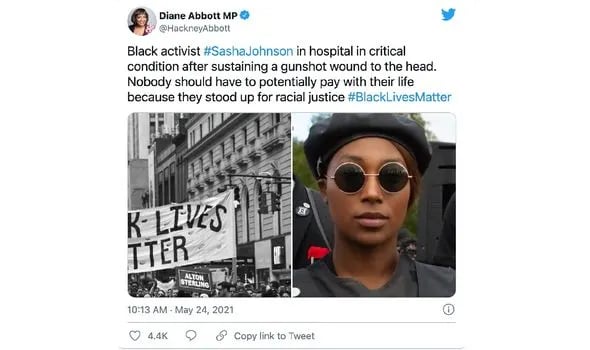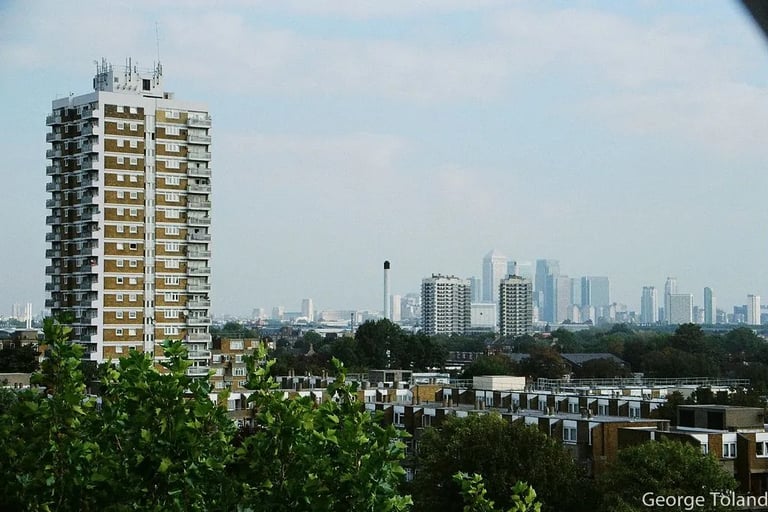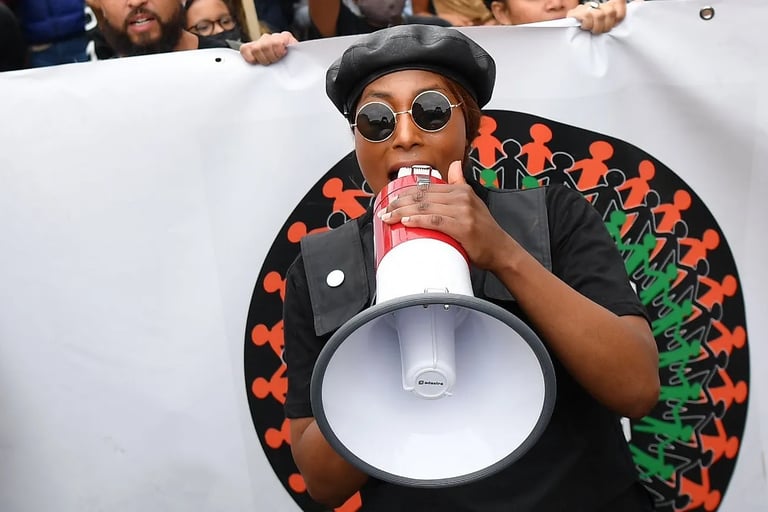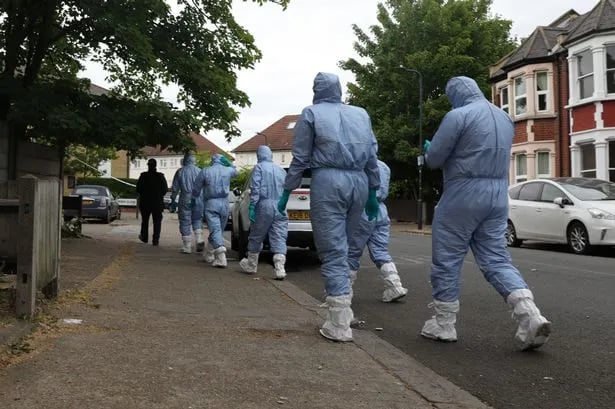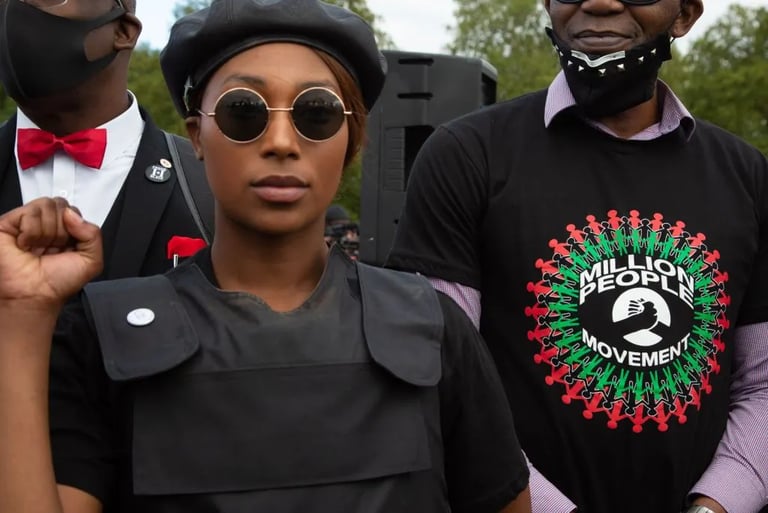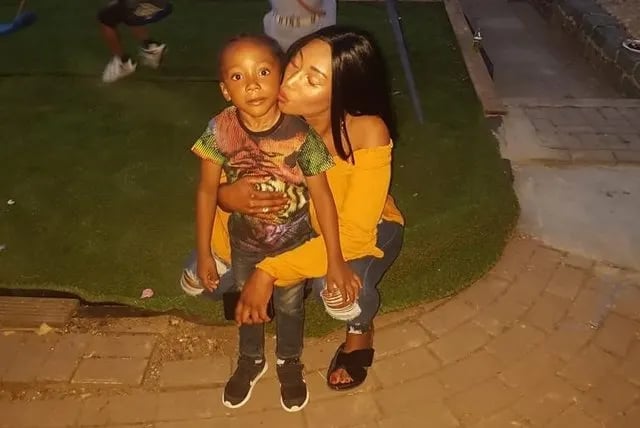Sasha Johnson’s case is collapsing. Our silence means we are all complicit.
A woman lies in her hospital bed, voiceless. She is the victim of a shooting in Peckham, one of London’s most gentrified neighbourhoods, home to some of our most side-lined communities. Shot at close range in the head, Sasha Johnson has lost her left eye and is totally paralysed on one side of her body. Her family, including her mother, sister and two young children, are experiencing a grief that cannot be put into words. Only worsening their pain is the knowledge that the case to bring Sasha Johnson’s perpetrators to justice is collapsing; the witnesses to the tragedy who were there at the party the night she was shot have not come forward. Without the witness testimonies, the four men indicted of the crime have walked free. Last week, the Crown Prosecution confirmed: no witnesses, no case.
The man leading the investigation, Detective Chief Inspector Nigel Penney, said:
“Our biggest challenge is the wall of silence we have faced when appealing for witnesses to come forward. Sasha was at a party when she was shot. There were plenty of people there. Yet many have not been willing to speak to us.”
Why has no one come forward? There is only one answer: fear. Mistrust of the police and the criminal justice system is entrenched in black and working class communities, and for good reason. Southwark, like Tower Hamlets, Newham, Camden and many other boroughs across London, is home to countless young men who have been harassed, strip searched and racially profiled from their youth. Counselled by their elders, and wisely, to practise caution around coppers.
Our problems are just that — our own. Disputes, whether mere fracas or long-standing feud, on the estate are largely dealt with as an internal matter. Silence is rewarded; you stay out of my business, we’ll stay out of yours. At that fateful party on May 23rd last year, Sasha was at a party whose guests were, more than likely, no strangers to being maltreated by the criminal justice system. Yet even knowing that, it is still worrying that, out of thirty people, none have chosen to identify Sasha’s perpetrators. We must ask ourselves — is her life worth less than those we are trying to protect? If it is that we are scared of reprisals, whether physical, in terms of our reputation or otherwise, we must navigate what that means as a direct consequence of state violence, and as a condition of something much more complex and challenging that exists within the power structures of the most disenfranchised demographics.
Fifteen years ago, my dad’s nephew was murdered in East London. There had been trouble outside the nightclub he was at with his girlfriend. Jason had gone to the car to talk to the driver, who then stabbed him in the leg, severing a major artery. Jason died on the way to the hospital. It was the only time I ever saw my dad in tears. I was young at the time, maybe seven or eight, and my parents did their best to keep me away from the pain of it all. But I remember seeing my dad cry for the first and only time, and being awakened by my mothers shriek of grief when they got the call in the morning. It was one of those events that changed the family forever. But in the spirit of silence, that grief was alchemised into something private, nestling into the souls of the family, particularly the older generation. Jasey’s killers were never brought to justice. Despite the fact there were many witnesses, despite the fact a family lost their cherished son, despite the fact that there were, are, people who knew who did it -nobody came forward. Nothing but silence. No witnesses, no case. Who do we choose to protect, and why? Fear drives us, our stories, and our pain, underground.
Silence has become a hallmark of the 21st century. Schoolchildren sing, “snitches get stitches.” Yet, those words are no mere playground chant. We carry that phrase with us into the big, wide world. Each of us becomes the protectorate of a silence that is not golden, but made of concrete, a tremendous weight that fixes us to the spot.
We remain silent in the face of injustice not because we do not care. In fact, in many cases, it is the opposite that is true. Intuitively, communities living on the margins are acutely aware of the ways in which complex damage has been done to us, causing the most vulnerable amongst us — the young, the impoverished, those with mental health disorders — to become the perpetrators of minor and violent crime. The complexities of the socio-political structures in which we live are compounded in a way that makes the serving of justice in cases like Sasha’s incredibly difficult. And yet, justice, in some form, must be served, for Sasha and her family, who are going through unimaginable pain, only made worse by the troubling thought that closure may never be found in any form.
Horrors upon horrors are repeated. The internalised pain of generations seems never ending. We are stuck in cycles of abuse, the torture of dirty water dripping down on us unceasingly from somewhere high above us. The skies of family after family are darkened, in season after season of sorry. Violence acted and re-enacted. As the wheel turns, the victim becomes the perpetrator, and the perpetrator once again the victim. A stony reticence calcifies the tongue, the need to protect one’s lifeblood an overwhelming force. The silence of a mother, who knows everything though she has closed her ears to hearing it, fearing the loss of another son through incarceration. Two years ago, in Harlesden where I grew up, four people, including a mother, her two year old son and two teenagers, were shot and left in critical condition. The incident barely made the news. A year later, the little boy’s grandmother was still appealing to the public for information. No witnesses to identify the man with a handgun on the moped shown driving away from the scene on CCTV. No witness, no case.
In our communities, there are many conversations that are left unspoken. To do so would be to acknowledge the fragility of the infrastructures on which we rest. Crimes do not effect merely the victim and the perpetrator alone. They affect the whole community, and incarceration is a big part of that. Last year, thirty young people were victims of homicide in the capital, the highest number since 2018. All of them were young men, mostly men of colour. When serious crime happens within our communities, mouths stay shut. It is a silence that is taught to you from a young age. It is reinforced with every school exclusion, every violent stop and search, every deportation, every sibling incarcerated, every time a case of domestic violence is ignored and a mother is left at the mercy of an abusive family member.
The Runnymede Trust’s report on the Police, Crime, Sentencing and Courts Bill, which has threatened to destroy the landscape of human rights in the UK, condemns the section of the Bill known as the Serious Violence Duty Act. This act:
“would force bodies such as youth services, local authorities and education providers to collaborate with the police by passing over information they may have pertaining to individuals the police deem to be involved in serious violence. (Runnymede) are concerned that the collection, retention, and use of data about individuals will be heavily fuelled by racial stereotypes, many of which centre on the ill-defined and porous concept of the ‘gang’.
It is no wonder that in this hostile environment people are mummed by the prospect of such draconian measures that threaten to further damage the already delicate infrastructure of the most vulnerable communities. Whether or not there are few or many people we can trust, we can always rely on a familiar system of social conduct and behaviours that unite us with our kinfolk. And yet, to rely too heavily on these structures is to be complacent when the network fails us. Like they failed my cousin, like they failed the victims of the Harlesden shooting, like they fail every young person who is a victim and perpetrator of violent crime, and like they are now failing Sasha.
Sasha’s case is, perhaps, less interesting to the public, because there is no scope for virtue signalling here. White middle class activists who profess their support of black activism, who pride themselves on saying and doing the right thing, are silent, because this is too complex an issue to touch. There are no cues to follow, and therefore perhaps feel it is unnecessary to have an opinion on this tragedy, or any other that looks like it. This helps no one, and only stokes the fires of fear and separatism that are gradually incinerating the foundations of our society. These, after all, are the activists with social capital. Their voices can be tools for change, but the passion for justice and the desire to offer support for marginalised communities must be authentic, not disingenuous or tokenistic, which it so often is. For a long time now, marginalised communities have become increasingly oppressed by the stifling compartmentalization that happens to the various aspects and conditions of our identities. So subtle has the whip become that our communities often find themselves at the mercy of increasingly generalised political tropes that disempowers us from seeking justice with an authority and agency that comes from the direct awareness of ourselves as a socio-politically complex and diverse community.
Sasha received devastating injuries that will change her life forever. The bullet came from the gun of someone in, or at least on the peripheries, of one of her communities. Thirty guests at the party. No witnesses. The silence is deafening not just from them, but from the media; the attention that the case garnered for a brief moment when the incident took place in May 23rd last year has all but fallen away. Sasha, a black woman fully invested in protecting her community, has been abandoned in her hour of need. A video that shows Sasha speaking at the Million Man March in 2020, which she organised, is littered with vitriolic comments against her. Several comments gloat about the irony of Sasha’s perpetrators being black. Reading them, I feel angry and frustrated, not just at the lack of compassion, but because there is nobody there to defend her. Sasha was shot by people that witnesses must have at the very least seen, and also very possibly knew. The lack of media interest and the difficulties in bringing people forward are indicative not just of society’s lack of urgency when it comes to violence inflicted on ethnic minorities and the working classes, especially women, but the fact that we, all of us, are ill-equipped to deal with the complexities of intercommunity harm on both a systemic and an intimate level.
This is a case that is difficult to look at because we are scared of what we will uncover if we dig too deep. The tapestry of society is woven with the frayed threads of a corrupt justice system, a broken welfare state, and the systemic issues that continue to plague people living on the breadlines, racial minorities and immigrants. Only by looking at this bigger picture can we find the causes, and solutions, to violent crime perpetrated by societies most neglected communities.
Sasha’s case has caused me to question the ideologies through which we seek justice. There is much hypocrisy in the issues we choose and not choose to platform. We talk about open borders, yet communities which have been long established in the UK stand immensely politically and socially divided. We talk about intersectionality, yet a black mother currently faces a lifetime of physical and emotional pain, and with no one to defend her because the circumstances under which she was injured are too socially and politically complex. The hypocrisy is startling.
For all our talk of intersectionality, there seems to be very few organisations invested in the justice of the hood. Not surprisingly; only by living in ends can you ever intimate how the politics on council estates and poorer neighbourhoods function. Organisations, like the Organisations, like the 4Front Project and the United Borders Project, who do the incredibly nuanced and sensitive work of supporting young people from these areas, tackling the victim-perpetrator cycle and dealing with the fundamental causes of of violent behaviours. These are organisations that must defy the prejudices of a society who seek to compartmentalise crime and the people that, willingly or otherwise, enact it. Many people still fail to see that when it comes to our most disadvantaged youth, most do not choose this life. The life very much chooses them.
In the days following the shooting, Labour MP Diane Abbot tweeted:
It was wonderful that Abbott spoke on the case at all. But Sasha was not targeted for her activism. She was the victim of collateral damage. Abbott’s comments were immediately seized upon, and she was accused of fuelling division. Abbott profusely refuted the accusation. What is a fact, is that Abbott’s claims strongly suggest that Sasha was shot by someone who was against racial justice. This simply isn’t true. While Abbott can be forgiven for her initial blunder, there is only one problem — where is Abbott now? Now that Sasha’s case is on the verge of being extinguished, when her perpetrators have walked free and there seems no end to justice in sight — where is her appeal for witnesses, or her public support for the family? Equally saddening is the scarce mention of Sasha’s case, bar a single post from last year, on the TTIP website.
Our society is a complex one. The road to justice has never been easy, and it is easy to lose clarity over what it is we are fighting for when the immediacy and acuteness of our pain is so poignant. Yet as those in power seek to divide us, we must tread carefully, for if we don’t we will find ourselves succumbing to that compliancy that Audre Lorde identified all those years ago. Our silence will not protect us. We must demand justice from the government and from those in authority, and we must we also demand it of ourselves. We must imagine radical ways of seeking community accountability in ways that support victims of crimes like Sasha, so that we do not repeat the cycles of trauma in which we find ourselves spinning.
If we do not speak, we are complicit.
Justice for Sasha Johnson.
(This piece is subject to edits.)
